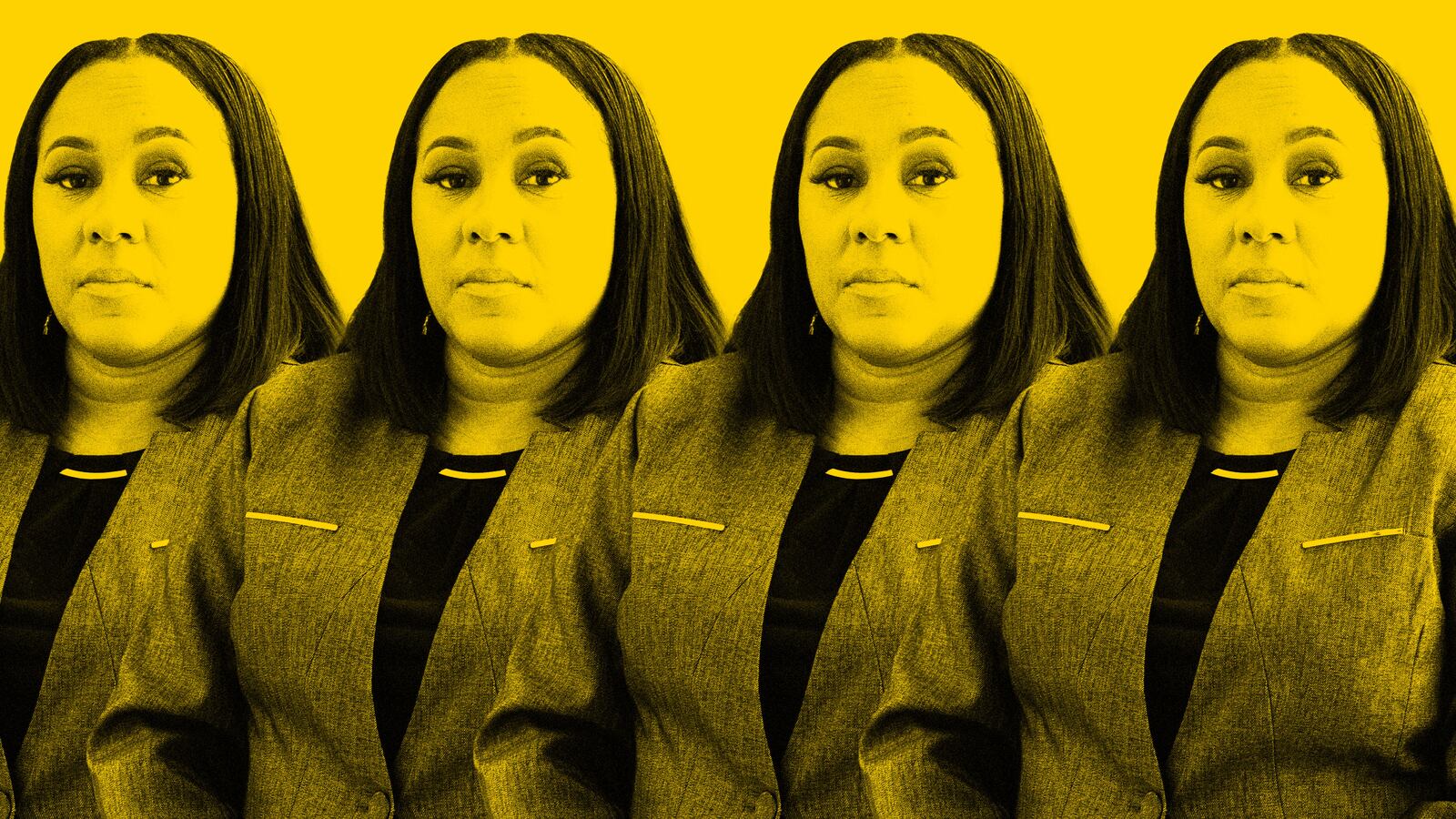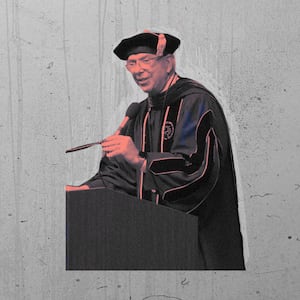There is something to worry about in a motion filed today by a Donald Trump co-defendant seeking to dismiss the indictment and disqualify Fulton County District Attorney Fani Willis. But the worry has nothing to do with the criminal prosecution.
The motion was filed by attorney Ashleigh Merchant who represents Trump co-defendant Michael Roman—a former Trump campaign official—and accuses DA Willis of misconduct, conflict of interest, and even possible federal crimes based upon Merchant’s unsupported claim that Willis had “engaged in an improper and clandestine personal relationship during the pendency of the case” with a special prosecutor she hired to work on the case.
Holding aside the fact that the motion manages to ramble on for 39 pages without offering any proof of a relationship between the two prosecutors, the motion’s legal theory is defective because at most the allegations amount to an HR personnel issue, not a prosecutorial misconduct—one much less a supposed federal crime.
Here’s why romance between prosecutors is irrelevant to a criminal prosecution.
First, contrary to the Trump lawyer’s argument, there is no “conflict of interest” presented by two prosecutors having a romantic relationship. That’s because they are on the same side of the case. If a prosecutor and a defense attorney were a romantic item, then the defendant might argue that their defense counsel was conflicted because the relationship might cause the defense attorney to fail to zealously represent the client by going easy on their friends-with-benefits opponent.
To get around this problem, defendant Roman argues that the conflict arises from the allegation that the special prosecutor—Nathan Wade—spends money on vacations with Willis, and that Willis therefore improperly “profits” from the prosecution. The problem with this argument is the fact that Willis is already paid to prosecute the case, so there is no “profit” in any prosecution for her.

Fulton County District Attorney Fani Willis speaks during a news conference on August 14, 2023.
Joe Raedle/GettyAny theory that Wade spent money on Willis derived entirely from his salary as a special prosecutor would require proof that—but for his special prosecutor salary—Wade could not afford to spend any money on his supposed dates with Willis. That’s hardly a convincing proposition on its face, and one that would be particularly to prove at any evidentiary hearing.
But as The New York Times reported, one law and ethics professor—Clark D. Cunningham of Georgia State University—opined that Roman’s motion should have included “sworn affidavits by witnesses with personal knowledge or authenticated documents,” so the lack of any such proof makes it appear likely that any hearing would produce nada.
The Atlanta Journal-Constitution—which first reported the story—quotes a professor emeritus ethics professor, Stephen Gillers, as saying if the allegations are true then “Willis was conflicted in the investigation and prosecution of the case” for lack of required “independent professional judgment.” But the professor goes on to clarify “that does not mean that her decisions were in fact improperly motivated,” but that the relationship could cause the public and state to lack confidence in her independent judgment.” Public confidence, however, is not a piece of evidence in criminal trials—because we don’t conduct prosecutions based on public opinion polling.
Second, let’s look at a somewhat similar scenario involving the storied O.J. Simpson murder trial. In that case, it later became rumored (to this day, these remain unproven rumors) that the two lead prosecutors—Marcia Clark and Chris Darden—had been romantically involved during the case.
If Simpson had been convicted, such a relationship would not have been grounds for reversal of his conviction because their theoretical relationship could not have affected the evidence in the case. That’s the problem for team Trump—it doesn’t matter what kind of relationship prosecutors may have unless that relationship somehow affects the evidence in the case.
The aftermath of the Simpson case actually offers the only real cause for concern about friends with benefits dynamics between prosecutors. Namely, that it might prove a distraction.
As Chris Darden put it in 2016, reacting to renewed interest in the case because of the hit FX series The People vs O.J. Simpson, “If I were to say I had a relationship with Marcia Clark, people would say we lost the case because we were more interested in intimacy than the law and the facts.”
Defendant Roman also makes the argument that the entire indictment is defective because Wade had not filed his oaths of office prior to starting work. But that argument was already rejected previously by Judge Scott McAffee who though so little of the argument that he analogized it to the Monty Python skit about a dead parrot.
So what is there to worry about with this motion? It’s the racism and sexism inherent in this effort to smear the district attorney and taint the prospective jury pool.
Attacking Fani Willis’ character is just a continuation of the racist trope of hyper-sexualized black women and men. Like the media image of Asian women as “Dragon Ladies” (or submissive sex dolls), the “Jezebel” image of black women is equally degrading and harmful. Writing in The Washington Post, Jagger Blaec quoted Sherronda J. Brown: “In order for white women to be upheld as pure, black women are first defined as licentious and sexually deviant.”
Trump himself wasted no time jumping on the bandwagon to smear Willis posting in his social media about the allegations. This is not new for Trump, as he previously made baseless claims about Willis supposedly of having an affair with a gang member. Then he referred to Willis as a “young racist”—which is Trump code used in place of a racial epithet like the “N-word.”
So the real concern is not the meritless legal arguments made in this latest maneuver by the Trump legal team. No, the real worry is that it’s a continuation of Trump’s willingness to play to racist and sexist hatred if he thinks it will help him and the willingness of millions of Americans to condone it.









